| “That little boys and girls should be tormented,” said Henry, “is what no one at all acquainted with human nature in a civilized state can deny.” -- Henry Tilney, Northanger Abbey |
| Time for a disclaimer: My purpose here is to dispute the notion that Austen held progressive views and was a fierce social critic. I think the evidence shows that her views were similar to people of her class and time. Below, I discuss what those views were, as regarded indigenous peoples. My intention is not to offend, but to inform. In Austen’s time, indigenous peoples were routinely referred to as “savages,” while Englishmen and Europeans were “civilized.” This requires a lot of qualification, though. Alongside the depiction of natives as cruel and primitive, as in the Declaration of Independence's "merciless Indian savages," there was a widespread notion of the "Noble Savage,” whose principles were uncorrupted by modern decadence, and who was naturally virtuous... |
| In Lydia, or Filial Piety, the warrior Cannassetego is tall and handsome "and tho' the fair complexion of the European Natives was not to be found in this Warrior, yet his shape and countenance hindered you from perceiving this deficiency." Likewise attractive in spite of her dusky complexion "which can not boast the Lily and the Rose," is Yarico, the maiden he loves. "Her soul had every tenderness which renders Woman the most amiable Object and delight of God's creation." (Yarico is a character who appeared frequently in 18th century literature. There are different versions of her story. In other versions, she falls in love with a European.) |
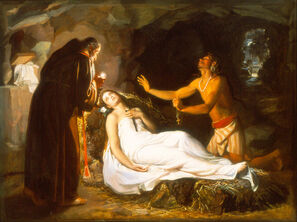 Atala presented a romantic view of the Noble Savage.
Atala presented a romantic view of the Noble Savage. Piomingo, "a warrior of the Muscogulgee nation," (but in fact a nom de plume for an American writer), lectures: "Among the savages of America age is universally respected. All unite to honour the face of the old man whenever he appears, whether his blanket be old or new, his pipe plain or ornamented with silver. But among the civilized Americans, I have always seen age, particularly if it exhibited any appearance of poverty or infirmity, neglected or insulted... If the old man be possessed of any property, it is a hundred to one but some finely polished and highly civilized young Christian will observe, 'Damn the old codger; I wish he was in hell, and I had his money.'"
Pocahontas-like heroines had a mortality rate equivalent to sopranos in Italian opera. These native maidens were as susceptible to untimely death as they were to the charms of European men. The French diplomat François-René de Chateaubriand wrote a popular novel, Atala, about a mixed-race Christian girl who saves the man she loves from being executed by her tribe. "She was uniformly beautiful; in her visage could be seen unknown degrees of virtue and passion, whose appeal was irresistible. To this she joined more tender graces; extreme sensitivity, combined with a profound melancholy, breathed in her eyes; her smile was heavenly. " She is also doomed.
This convention continued up through the last century: Ama, an African princess, dies after rescuing the hero in the 1911 boy's adventure tale A Middy of the [Anti] Slave Squadron. The hero prays "earnestly that God would have mercy upon the soul of the simple, unsophisticated, savage maiden who had lost her life while helping me to save my own." In the original Star Trek series which aired on television in the 1960's, an episode finds Captain Kirk suffering from amnesia on an away trip. He amazes the natives by performing mouth-to-mouth resuscitation, then marries a lovely native priestess, who suffers along with him when her fellow tribesmen pelt him with stones. She dies, of course.
As Robbie Richardson, an historian and member of the Mi'kmaw tribe, notes, "the noble primitives who do appear in literature" are seldom ordinary tribespeople but "are often meant to be kings, queens, princes, and so forth." Where there was interracial romance, the native partner had to be well-born, at least. And preferably dead before the final chapter.
(Canessetego and Yarico, who do not cross the racial courtship line, and are merely a sub-plot in the novel in which they appear, and they get a happy ending. They marry, and "mutual bliss reigned during their lives.")
These native romances existed alongside reality. Jane Austen's contemporaries were fully aware that colonial expansion was destroying the traditional lives of aboriginal peoples and that imported diseases were killing them wholesale.
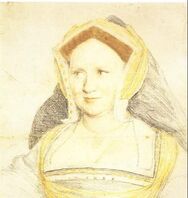 Detail of Holbein, "Portrait of an English Lady," 1527
Detail of Holbein, "Portrait of an English Lady," 1527 Commentators also pointed out that Europeans should not hold themselves out as being superior in all respects. Adam Smith wrote in the Theory of Moral Sentiments (1759): "Some of the savage nations in North America tie four boards round the heads of their children, and thus squeeze them, while the bones are tender and gristly, into a form that is almost perfectly square. Europeans are astonished at the absurd barbarity of this practice, to which some missionaries have imputed the singular stupidity of those nations among whom it prevails. But when they condemn those savages, they do not reflect that the ladies in Europe had, till within these very few years, been endeavouring, for near a century past, to squeeze the beautiful roundness of their natural shape into a square form of the same kind."
| | Clutching My Pearls is my ongoing blog series about my take on Jane Austen’s beliefs and ideas, as based on her novels. Click here for the first in the series. Update: Today we have a new iteration of the Noble Savage. In addition to claiming that indigenous people lived in absolute harmony with nature, now it is claimed that they were completely au fait in matters of gender identity. Quite chill with non-binary and all that. This seems to me to be most unlikely in any tribe dependent upon the numbers, prowess, and success of its warriors for its very survival. |
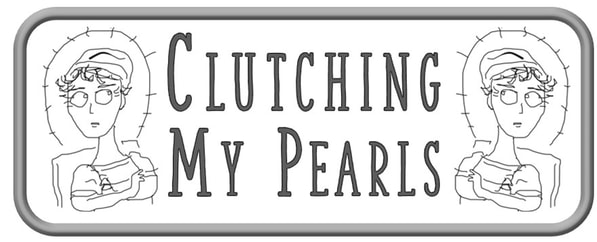
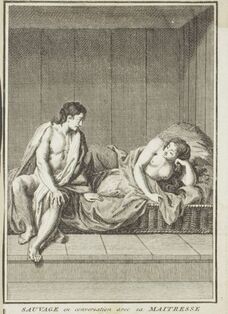
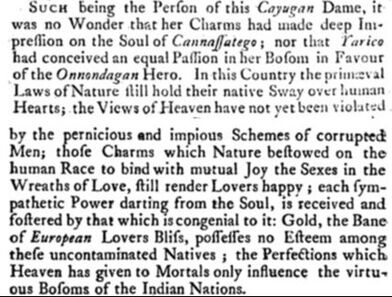
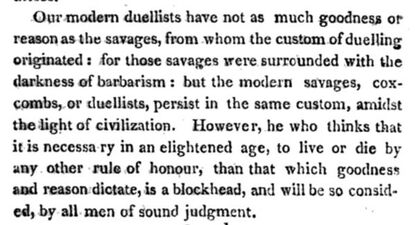
 RSS Feed
RSS Feed